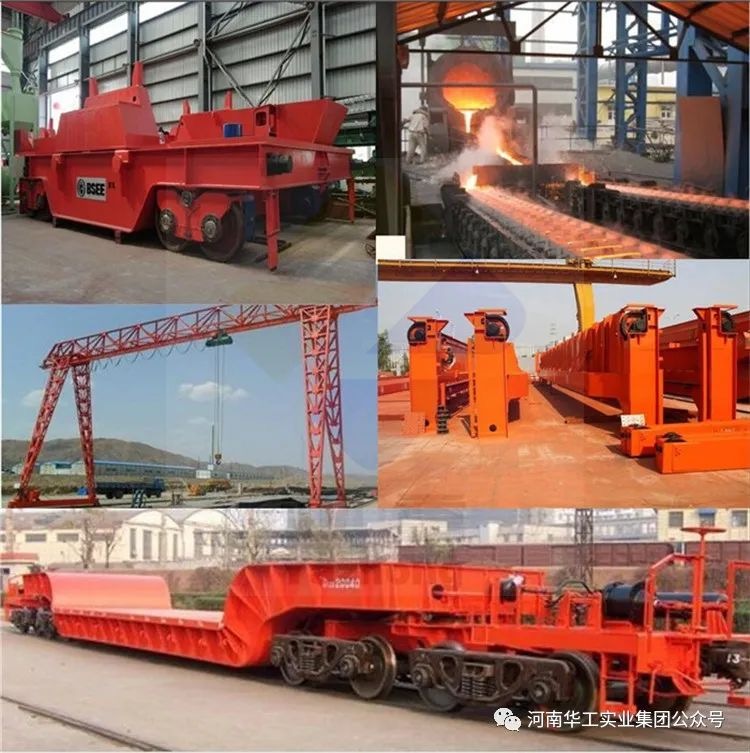Crane wheels are a kind of forgings, which are mainly used in portal cranes, bridge cranes and mining machines. So what are forgings? A forging is an object in which metal is subjected to pressure to mould the required shape or suitable compression force through plastic deformation. This force is typically achieved through the use of a hammer or pressure. The forging process builds delicate granular structures and improves the physical properties of the metal. In the real-life use of parts, a proper design allows the particles to flow in the direction of the main pressure.

Forging refers to the heated metal material forged into various shapes of tools, machine parts or blanks. Forging process to these hot metal blanks for a variety of processing, so the process of high temperature, smoke, vibration and noise can not be avoided, a little careless may be dangerous, so the forging process safety protection is very important. Forging production heating equipment and forging equipment is indispensable, these devices release a lot of heat energy, we need to be in a ventilated and purified environment. Forging tools are varied, but also intensive operations, requiring each technician can not be sloppy, stick to their posts, noisy environment requires a calm technician, can not be operated at will. Regular maintenance of equipment, all operators must bring protective gear before work. In the forging operation, several operators should concentrate on each other, cooperate with each other, avoid the dangerous direction, choose a relatively safe position, the body should avoid the direction of the material head to fly out, the forging is too cold, too thin, not placed in the centre of the hammer, not placed steadily or there is a danger are not allowed to hammer, so as to avoid damage to the equipment, moulds and shock arm, as well as the occurrence of forging pieces flying out, resulting in accidents causing injuries, it is strictly prohibited to drop the hammer without authorization and hit the empty hammer, are not allowed to Hand or foot to remove the anvil surface of the oxide skin, are not allowed to touch the forging; red-hot billet and forged forgings are not allowed to throw.
Next, understand some basic knowledge when forging crane wheel forgings.
First of all, low plasticity draw long, should pay attention to choose the appropriate feeding ratio, feeding ratio is too small, the deformation is concentrated in the upper and lower parts, the centre of the forging is not, and along the axial tensile stress, resulting in internal transverse cracks. In upsetting, commonly used soft liner upsetting or stacked upsetting (for forging pancake-shaped parts), in order to improve the unevenness of deformation, to prevent surface cracks.
Secondly, when considering the forging process, especially the last fire forging, should try to avoid in the critical deformation degree, so as not to get coarse grain organisation. Specifically, high temperature metal plasticity, deformation resistance is small, should be used far greater than the critical deformation degree of larger deformation forging; low temperature correction using less than the critical deformation should be process to determine the quality of forging pieces of the standard degree of small deformation for local repair.
Then if the temperature and the degree of deformation due to improper selection and get coarse grain, can use the heat treatment phase change refinement grain organisation, but for the heat treatment does not occur in the phase change in the steel, such as austenitic steel, it is necessary in the forging process to obtain fine and uniform grain organisation, so the forging of such materials must be doubled attention.
Finally, the formation of fibrous tissue due to thermal deformation, will make the mechanical properties of the metal anisotropy, that is, the longitudinal mechanical properties of the indicators of A, Z, Ak than the corresponding indicators of the transverse direction is much larger than the strength of the two directions Rm. Re is not much difference.
Contact: Mrs.Peng
Phone: 86-15910902294
E-mail: pengying@hjwm.com.cn
Whatsapp:+86 13713229714
Add: 140 meters north of Dongyangze Road, Guiling Avenue, Changyuan City, Xinxiang City, Henan Province,China
We chat
